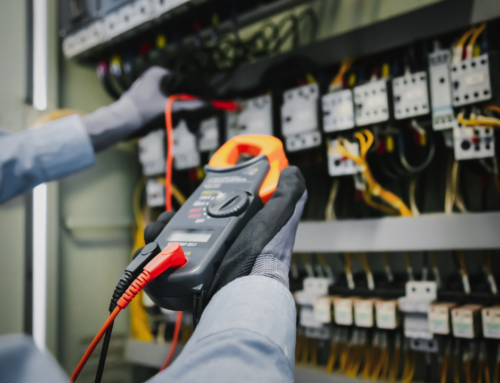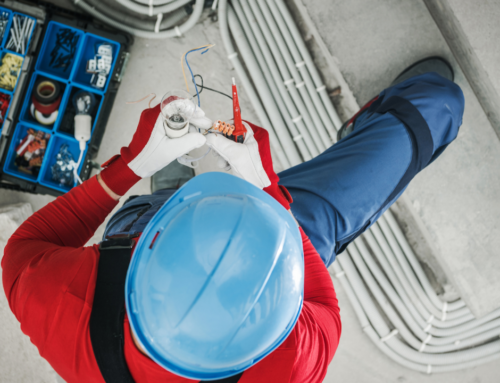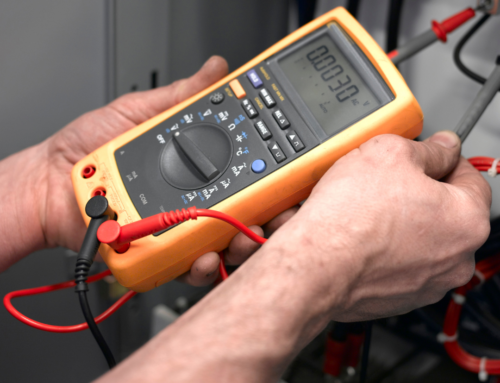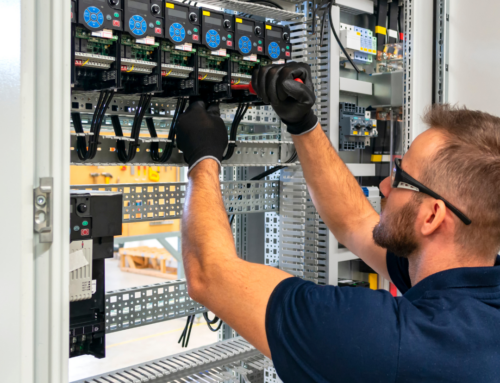In the realm of electrical work, the distinction between residential and commercial sectors is significant, with each requiring a unique set of skills and expertise. A commercial electrician specialises in the installation, maintenance, and repair of electrical systems in commercial buildings, such as offices, retail stores, and other business establishments.
Installation and Maintenance of Wiring
One of the primary duties of a commercial electrician is the installation and maintenance of wiring in commercial buildings. This involves laying out and installing electrical wires, conduits, and other components necessary for distributing power throughout a facility. Unlike residential wiring, commercial wiring often requires a higher level of complexity due to the larger scale and specific needs of commercial buildings. Maintenance is equally critical, as it ensures the electrical systems remain in optimal condition, reducing the risk of faults and failures.
Performing Safety Checks
Safety is paramount in the electrical industry, and commercial electricians play a crucial role in conducting safety checks and assessments. These professionals are tasked with ensuring that all electrical installations and systems comply with national and local safety standards and regulations. Regular safety checks help identify potential hazards, such as overloaded circuits or faulty wiring, thereby preventing accidents and ensuring the safety of the building’s occupants.
Troubleshooting and Repairing Faulty Equipment
Commercial electricians are adept at diagnosing and fixing problems within electrical systems. When equipment malfunctions or a system fails, they must quickly identify the issue and execute the necessary repairs. This requires a deep understanding of electrical systems and the ability to troubleshoot effectively, ensuring that businesses experience minimal downtime.
Making, Reading, and Evaluating Technical Plans and Drawings
A commercial electrician must be proficient in interpreting technical plans and drawings. This skill is essential for both the installation of new electrical systems and the troubleshooting of existing ones. Electricians use these documents to understand the layout of electrical circuits, the placement of components, and the overall design of the system.
Designing Plans for New Electrical Installations
Beyond installation and maintenance, commercial electricians are often involved in the design phase of new electrical systems. They work closely with architects and engineers to develop electrical plans that meet the specific needs of a commercial space. This includes determining the appropriate location for electrical outlets, lighting fixtures, and other components, as well as ensuring that the design complies with all relevant codes and standards.
On-site Training of Apprentices
Experienced commercial electricians are responsible for the on-site training of apprentices. They impart practical knowledge and skills to the next generation of electricians, covering everything from basic wiring techniques to complex troubleshooting. This hands-on training is crucial for the professional development of apprentices and ensures the continued excellence of the trade.
Leading and Coordinating Teams on a Given Project
Commercial electricians often take on leadership roles, especially in larger projects. They are responsible for coordinating the efforts of a team, ensuring that tasks are completed efficiently and to a high standard. This involves planning work schedules, assigning tasks, and overseeing the work of junior electricians and apprentices.
The role of a commercial electrician is both diverse and demanding, encompassing a wide range of tasks from the installation and maintenance of wiring to the design of new electrical systems. Get in touch with us if you’re in need of some commercial electrical work, our expertise ensures that commercial buildings have safe, efficient, and reliable electrical systems, making them indispensable to the modern business landscape.







Leave A Comment